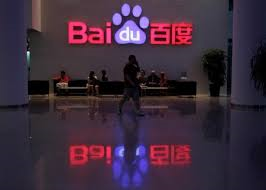
Breaking News
6.5x55 Swedish vs. 6.5 Creedmoor: The New 6.5mm Hotness
Best 7mm PRC Ammo: Hunting and Long-Distance Target Shooting
 Christmas Truce of 1914, World War I - For Sharing, For Peace
Christmas Truce of 1914, World War I - For Sharing, For Peace
Top Tech News
 EngineAI T800: Born to Disrupt! #EngineAI #robotics #newtechnology #newproduct
EngineAI T800: Born to Disrupt! #EngineAI #robotics #newtechnology #newproduct
 This Silicon Anode Breakthrough Could Mark A Turning Point For EV Batteries [Update]
This Silicon Anode Breakthrough Could Mark A Turning Point For EV Batteries [Update]
 Travel gadget promises to dry and iron your clothes – totally hands-free
Travel gadget promises to dry and iron your clothes – totally hands-free
 Perfect Aircrete, Kitchen Ingredients.
Perfect Aircrete, Kitchen Ingredients.
 Futuristic pixel-raising display lets you feel what's onscreen
Futuristic pixel-raising display lets you feel what's onscreen
 Cutting-Edge Facility Generates Pure Water and Hydrogen Fuel from Seawater for Mere Pennies
Cutting-Edge Facility Generates Pure Water and Hydrogen Fuel from Seawater for Mere Pennies
 This tiny dev board is packed with features for ambitious makers
This tiny dev board is packed with features for ambitious makers
 Scientists Discover Gel to Regrow Tooth Enamel
Scientists Discover Gel to Regrow Tooth Enamel
 Vitamin C and Dandelion Root Killing Cancer Cells -- as Former CDC Director Calls for COVID-19...
Vitamin C and Dandelion Root Killing Cancer Cells -- as Former CDC Director Calls for COVID-19...
 Galactic Brain: US firm plans space-based data centers, power grid to challenge China
Galactic Brain: US firm plans space-based data centers, power grid to challenge China
Baidu and China Life set up US$1 billion AI fund

China Life on Thursday said it had teamed up with internet search company Baidu to form a 7 billion yuan (US $ 1 billion) private equity fund. China Life will invest 5.6 billion yuan while Baidu will cover the remainder. The fund will invest in unlisted companies Involved in artificial intelligence (AI) and internet finance.
Baidu has invested heavily in artificial intelligence: Building image-recognition technology, investing in autonomous driving, launching digital assistants, similar to Apple's Siri, and even developing personal home robots. In May, the firm amended its mission statement to reflect the change in direction.
In July, Baidu said more than 50 groups have signed on to build and improve on Apollo, its autonomous driving platform, including top Chinese car manufacturers Chery Auto, Great Wall Motors and Changan Automobile, and even ridesharing company Grab Taxi. Foreign partners included Ford and Intel.
Of the 20 billion yuan ($3 billion) Baidu spent in research and development over the past two and a half years, the majority goes to AI.

 The State's Last Stand
The State's Last Stand


